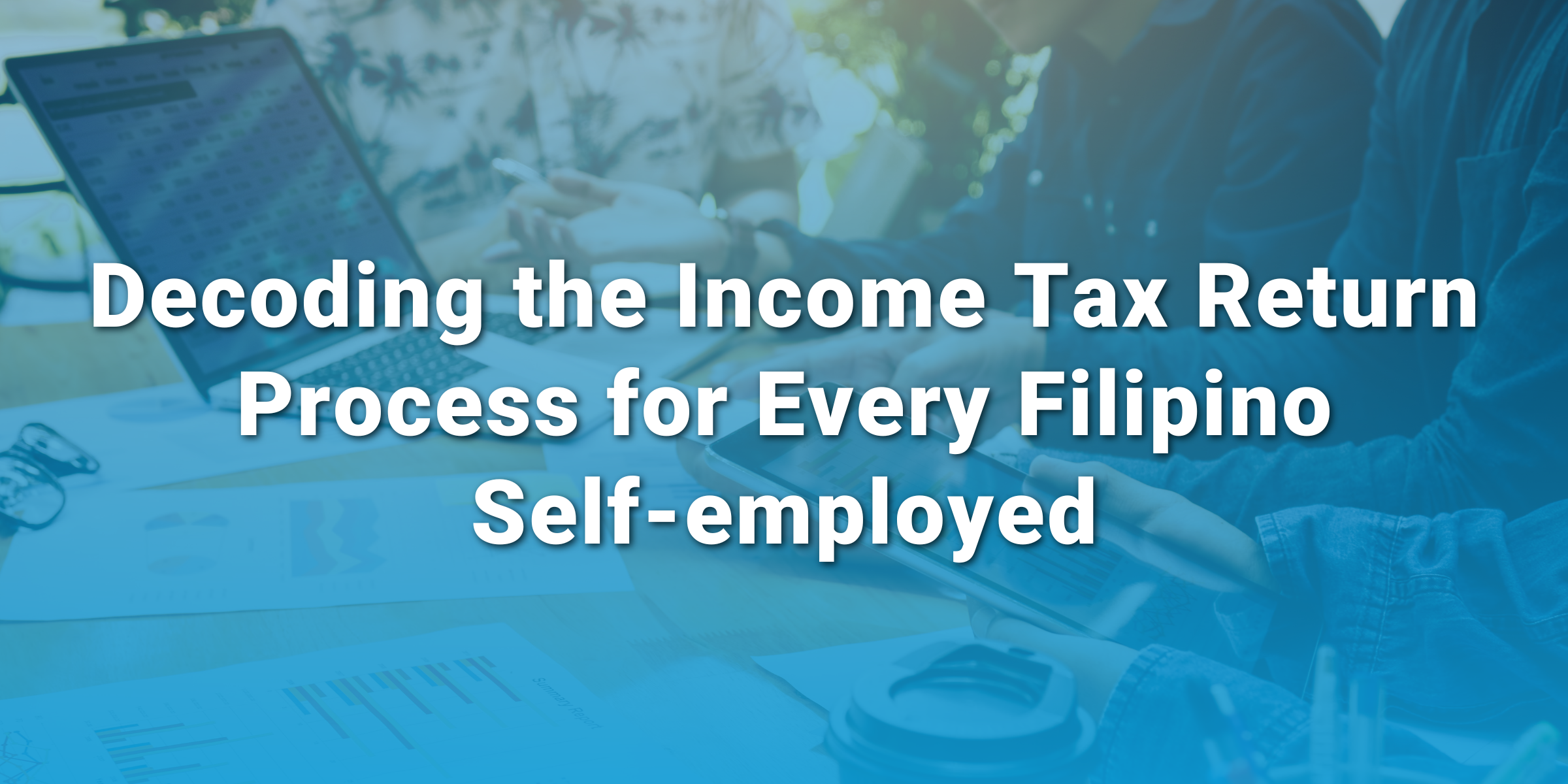The vibrant entrepreneurial spirit in the Philippines is unmistakable. As more and more Filipinos are embracing the self-employed route, understanding the nuances of the tax system becomes crucial. At the heart of this system is the income tax return (ITR), a document many Filipinos regard with a mix of uncertainty and confusion. But fear not! This article will demystify the process for you.
Understanding Income Tax Return in the Philippines
For the self-employed individuals, businesses, and professionals, an Income Tax Return is a document that proves your reported income. It contains details about your revenue, expenses, and the income tax you’ve paid for the year.
In essence, when you file your income tax return, you’re essentially giving the Bureau of Internal Revenue (BIR) an overview of your finances for a specific year or quarter. Depending on your financial activities, you might either pay more taxes or get a refund.
Why is the ITR Important for the Self-Employed?
Proof of Income: An ITR serves as a record of your earnings. If you’re planning to get a loan, a credit card, or even travel abroad, many institutions will require this document as proof of your financial capability.
Legal Compliance: In the Philippines, not filing or incorrectly filing your income tax return can lead to heavy penalties. The BIR has been tightening its noose around tax evaders, and being self-employed doesn’t excuse anyone from their responsibilities.
Peace of Mind: Once you’ve submitted your ITR, you’ll have the peace of mind knowing that you’ve done your duty. This can also provide you with a clearer financial perspective, helping you plan your business’s future better.
How Can the Self-Employed Prepare and File their Income Tax Return?
- Organize your financial records: Keep all your receipts, invoices, and other financial documents. These will be crucial when you’re calculating your taxable income.
- Understand the Tax Deadlines: Normally, the annual income tax return for the previous calendar year should be filed on or before April 15 of the current year. However, always keep an eye on announcements from the BIR in case of changes.
- Use Bookkeeping and Tax Filing Softwares: Modern problems require modern solutions. With the rise of digital technology, several softwares have emerged to make tax filing easier and more convenient for Filipinos. These softwares not only help you organize your records but also provide step-by-step guidance on how to compute and file your taxes.
- Consult with a Tax Professional: While softwares can be highly efficient, having a consultation with a tax professional can provide clarity on more complex tax issues, especially if you’re a high-earning freelancer or run a booming business.

The use of an innovative bookkeeping & tax filing software and consultation with a tax expert bring us to an interesting blend of technology and human expertise: Beppo.
When thinking about income tax returns, Beppo recognizes the challenges faced by SMEs and the self-employed sector in the Philippines. To address this, Beppo marries the precision of advanced technology with the wisdom of experienced tax professionals.
In a landscape where income tax return compliance is crucial, Beppo emerges as a beacon for SMEs and self-employed, offering tailored solutions that recognize the unique challenges and requirements of every Filipino.
Whether you’re just starting out or are well-established, understanding and managing your income tax return becomes an experience rather than a chore with Beppo. Discover Beppo by visiting https://beppo.com or book a call with us.


